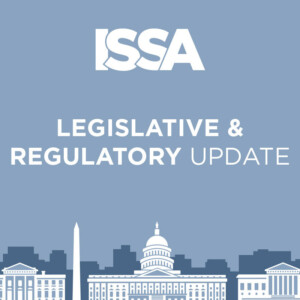ISSA Leg. & Reg. Update – House Passes WIPPES Act
 Welcome to the latest ISSA Legislative & Regulatory Update, a biweekly roundup of the public-policy issues currently impacting the full cleaning supply chain. This update touches on the House passing the ISSA-supported WIPPES Act, ISSA backing the expansion of the 199A tax deduction, a free July 17 ISSA Advocacy-update webinar, and more.
Welcome to the latest ISSA Legislative & Regulatory Update, a biweekly roundup of the public-policy issues currently impacting the full cleaning supply chain. This update touches on the House passing the ISSA-supported WIPPES Act, ISSA backing the expansion of the 199A tax deduction, a free July 17 ISSA Advocacy-update webinar, and more.
Want to stay informed about critical government affairs impacting the cleaning and facility-solutions industry? Sign up here to have the ISSA Legislative & Regulatory Update emailed directly to you every other week.
Happy Fourth from your ISSA Advocacy Team!
ISSA Advocacy
House Passes WIPPES Act
What it means: The U.S. House of Representatives passed by voice vote the Wastewater Infrastructure Pollution Prevention and Environmental Safety (WIPPES) Act (HR 2269). This bipartisan and bicameral legislation would allow federal preemption over state laws regulating “do not flush” labels. The Senate Commerce Committee has advanced the Senate companion of the bill.
Why it matters: Due to the lack of consistent and clear disposal packaging instructions, non-flushable wipes are often flushed down the toilet. Since these types of wipes are not designed to be flushed, they can clog and damage pipes, pumps, and treatment equipment, resulting in increased operational and maintenance costs for clean water utilities.
What ISSA is doing: ISSA strongly supports the WIPPES Act. Using the ISSA Advocacy Action Center, take a moment to urge your senators to follow suit by passing this commonsense legislation to reduce utility costs, consumer confusion, and pollution. Take action now
ISSA Backs 199A Expansion
What it means: With the reconciliation bill process reaching its final stages, ISSA, along with 119 other trade associations, called on the U.S. Senate to incorporate a key part of the House of Representatives-passed legislation–an expansion of the 199A deduction from 20 to 23 percent.
Why it matters: Expanding Section 199A will help preserve tax parity between pass-through businesses and larger public corporations, while helping ensure that the Senate bill does not raise taxes on millions of Main Street businesses.
What ISSA is doing: The letter sent to the Chair of the Senate Committee on Finance that ISSA cosigned advances the association’s legislative objective for tax policies that incentivize innovation, investment, and growth in the cleaning industry. Learn more

Tariffs and Taxes and Training, Oh My – Join Us for This Free ISSA Webinar
Why attend: Six months into a new Congress and the return of President Trump to office, we now have a clearer picture of the policy changes that have and are likely to impact the industry. Join us for this free ISSA webinar at 12 pm CT on July 17 for an insider briefing on the top legislative and regulatory issues facing the cleaning and facilities-solutions industries. Learn more and register
When ICE Comes Knocking
What it means: For cleaning companies that rely on a skilled, diverse workforce, including foreign nationals and temporary visa holders, federal scrutiny of immigration compliance is more than a policy headline. It’s a growing operational risk.
Why it matters: During a recent ISSA webinar, immigration attorney Laura Foot Reiff of Greenberg Traurig LLP discussed the rising tide of Immigration and Customs Enforcement (ICE) worksite audits and what employers in the cleaning industry must do to protect their businesses and teams.
“There is no more room for casual compliance,” Reiff said. “The risk environment has changed dramatically, and cleaning companies—especially those that depend on subcontractors or foreign-born workers—must prepare for the very real possibility of an ICE visit.” Learn more
What ISSA is doing: View a recording of this June 5 ISSA webinar here.
Safer Choice Program Continues after EPA Reorganization
What it means: Despite recent restructuring within the U.S. Environmental Protection Agency (EPA), the Safer Choice program remains active.
Why it matters: This voluntary program, which labels cleaning products meeting rigorous health, safety, and environmental criteria, is used by businesses as a vital tool for communicating product safety and sustainability to consumers. While Safer Choice survives, the program is not out of danger, but it continues to meet user expectations for performance, environmental responsibility, and safety.
What ISSA is doing: Earlier this year, ISSA helped spearhead and signed, along with many other organizations and businesses, a letter urging the EPA to maintain the Safer Choice program. Learn more
Packaging EPR Laws Expand to MD, WA
What it means: A significant shift in how packaging waste is managed is underway in the United States, with Maryland and Washington State recently becoming the sixth and seventh states, respectively, to enact extended producer responsibility (EPR) laws for paper and packaging materials.
Why it matters: These legislative moves signal a growing trend towards making “producers” (including manufacturers and distributors of cleaning products) financially and operationally responsible for the end-of-life management of their products. This development has important implications for ISSA members involved in the production, distribution, or use of cleaning products.
What ISSA is doing: This ISSA article summarizes the covered materials, key timelines, and industry implications of these recently passed laws in Maryland and Washington. ISSA is also updating its EPR guidance document to help members navigate these changing requirements and ensure compliance with emerging EPR frameworks. Learn more
Register now for the August 19 ISSA webinar The Sustainable Sweep: EPR, Circularity, and the Future of the Cleaning Industry.
Additional Updates
Legislative
Senate Advances Tax Package
The U.S. Senate advanced a sweeping tax and spending package, moving the bill one step closer to passage. The vote was 51-49, with two Republicans joining all Democrats in opposition, teeing up an imminent vote on final passage.
The package includes tax cuts, a funding increase for immigration enforcement, and Medicaid cuts, among other provisions. If the Senate passes the bill, getting the measure to President Trump by Republicans’ self-imposed July 4 deadline would require another vote by the House of Representatives. ISSA strongly supports the pro-growth tax and expanded 529 plan-eligibility provisions of the legislation. Learn more (NBC News)
Bill Introduced to Increase Federal Minimum Wage
U.S. Senator Josh Hawley (R-MO) introduced legislation that would increase the federal minimum wage to US$15 per hour from the current $7.25 per hour. If adopted, the bill, dubbed the Higher Wages for American Works Act of 2025, would raise the hourly standard wage to $15 starting January 1, 2026, and would include subsequent annual increases to index with inflation. The federal wage has not increased since 2009. Learn more (Restaurant Business)
Senators Call on EPA to Study Consumer Packaging
U.S. Senators Shelley Moore Capito (R-WV) and Jeff Merkley (D-OR) introduced the Research for Environmental Uses and Sustainable Economies Act. The REUSE Act would direct the U.S. Environmental Protection Agency (EPA) to conduct a feasibility study on reuse and refill systems in different sectors, including consumer-cleaning and personal-care products. Learn more (Packaging Dive)
Regulatory & Judicial
Canada Rescinds Digital-Services Tax to Advance Trade Talks
Canada rescinded its digital-services tax targeting U.S. technology firms hours before it was due to take effect. The two countries will resume previously stalled trade talks to reach a deal by July 21. Learn more (Reuters)
Trump Tariffs Remain in Effect While Appeals Proceed
A federal appeals court allowed President Trump’s most sweeping tariffs to remain in effect while it reviews a lower court decision blocking them on grounds that Trump exceeded his authority by imposing them. The decision by the U.S. Court of Appeals for the Federal Circuit in Washington, DC means that Trump may continue to enforce, for now, his “Liberation Day” tariffs on imports from most U.S. trading partners, as well as a separate set of tariffs levied on Canada, China, and Mexico.
The appeals court has yet to rule on whether the tariffs are permissible under the Emergency Economic Powers Act that Trump cited to justify them, but it allowed the tariffs to remain in place while the appeals play out. The ruling has no impact on other tariffs levied under more traditional legal authority, such as tariffs on steel and aluminum imports.
At least five other court cases have challenged the tariffs justified under the Emergency Economic Powers Act, including other small businesses and the state of California. One of those cases, in federal court in Washington, DC, also resulted in an initial ruling against the tariffs, and no court has yet backed the unlimited emergency tariff authority that Trump has claimed. Learn more (Reuters)
State & Local News
Cal/OSHA Protections Extended to Domestic Workers
For the first time, domestic workers employed by companies in California, such as house cleaners, caregivers, and gardeners, will be covered by state workplace safety and health laws starting July 1, 2025. Until now, these laws did not cover individuals performing household domestic work, leaving a gap in coverage. Learn more
ME Alters Packaging EPR Law
Maine Governor Janet Mills signed LD 1423, legislation updating the state’s packaging extended producer responsibility (EPR) law passed in 2021. The new law clarifies definitions for producers and producer exemptions, post-consumer recycled material, toxicity, and more. Learn more (Packaging Dive)
Minimum Wage
PA: The General Assembly passed a bill to raise the minimum wage in Pennsylvania. House Bill 1549 would increase the minimum wage to US$15 per hour for most Pennsylvanians, though it would only raise it to $12 in some smaller counties. The Governor is expected to sign the bill if the Senate passes it. Learn more (Jackson Lewis)
Los Angeles: A coalition of hotels, airlines, and concession companies at Los Angeles International Airport filed paperwork to force a citywide vote on a new ordinance increasing the minimum wage of hotel and airport workers to US$30 per hour by 2028. Learn more (Los Angeles Times)
Chicago: Starting July 1, Chicago’s minimum wage will be US$16.60, and the minimum wage for subsidized youth employment programs will be $16.50. Learn more (Cleaning & Maintenance Management)














